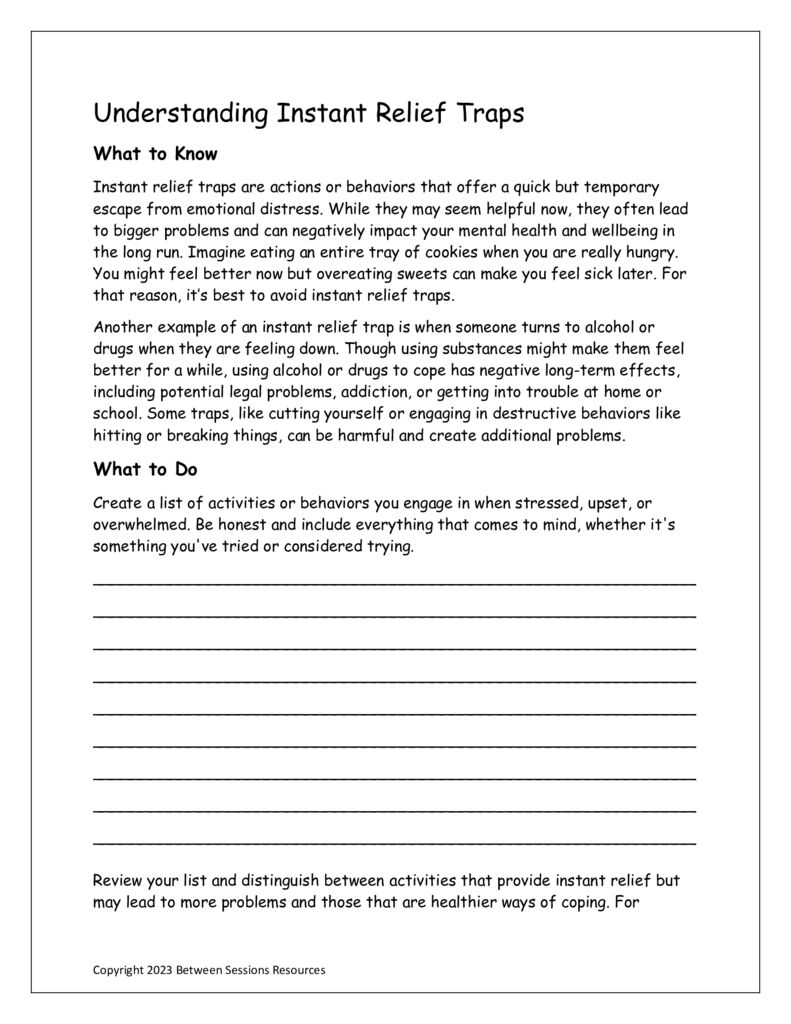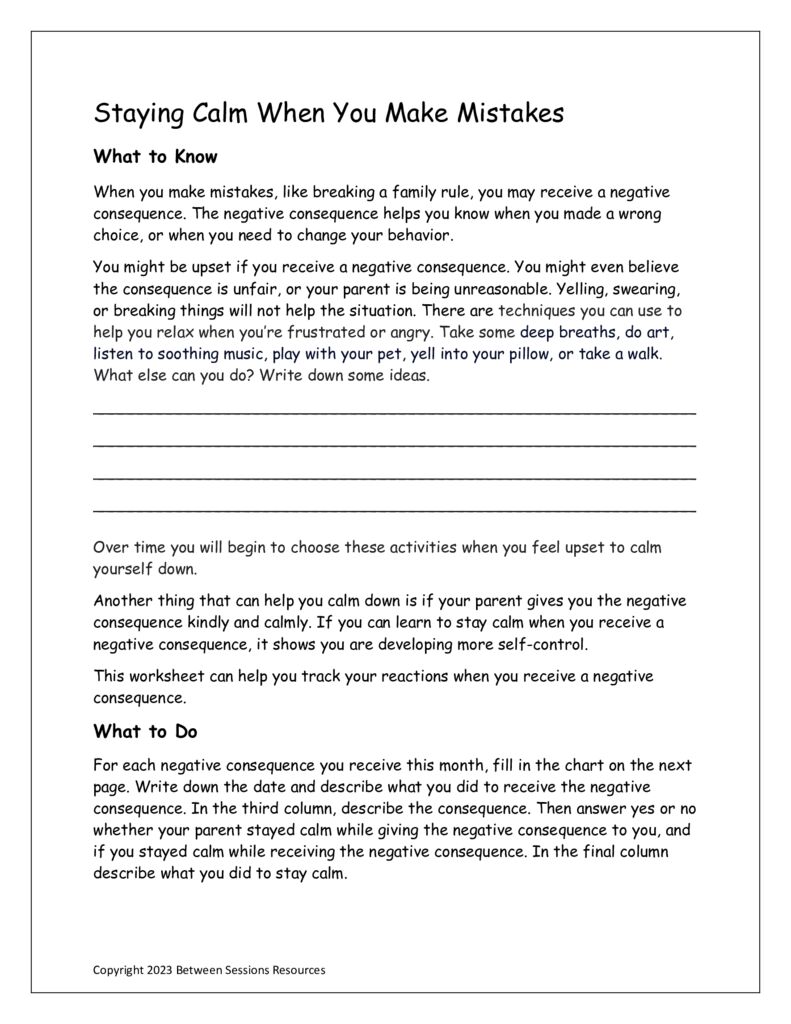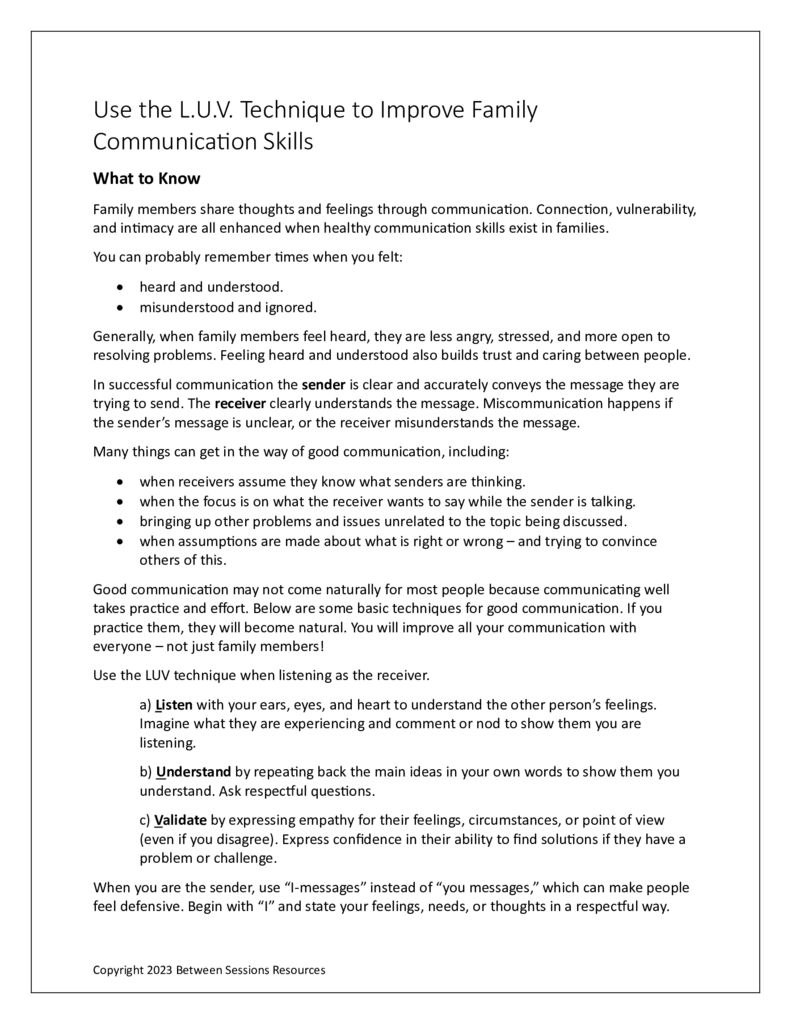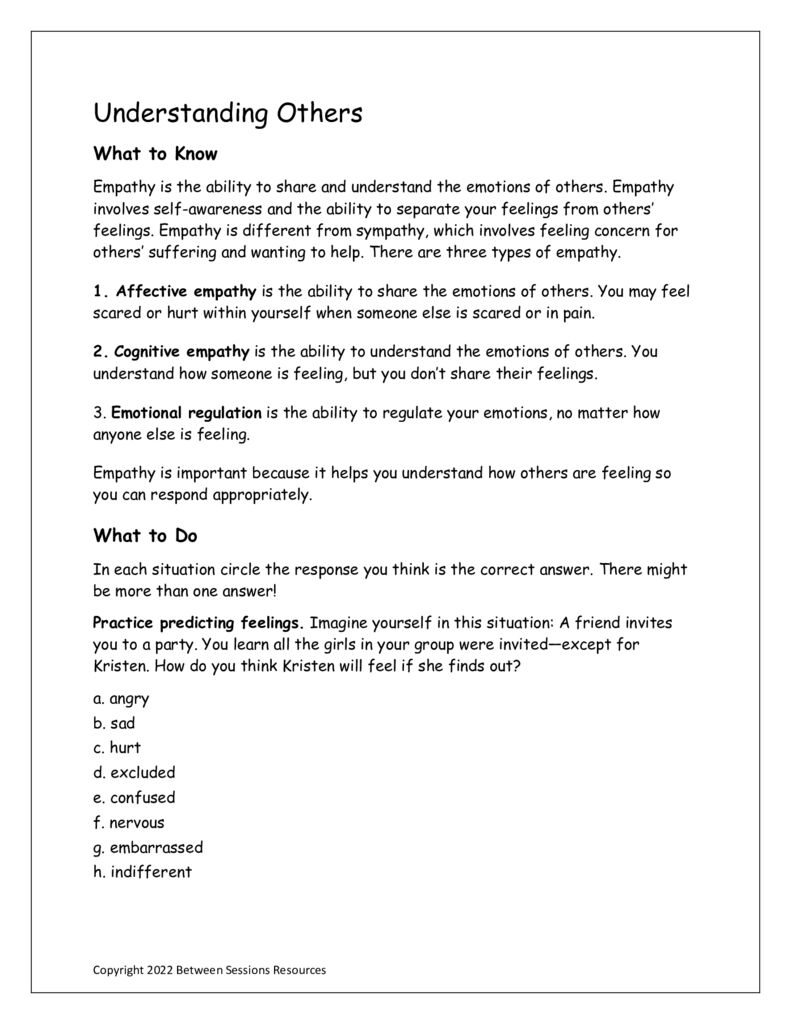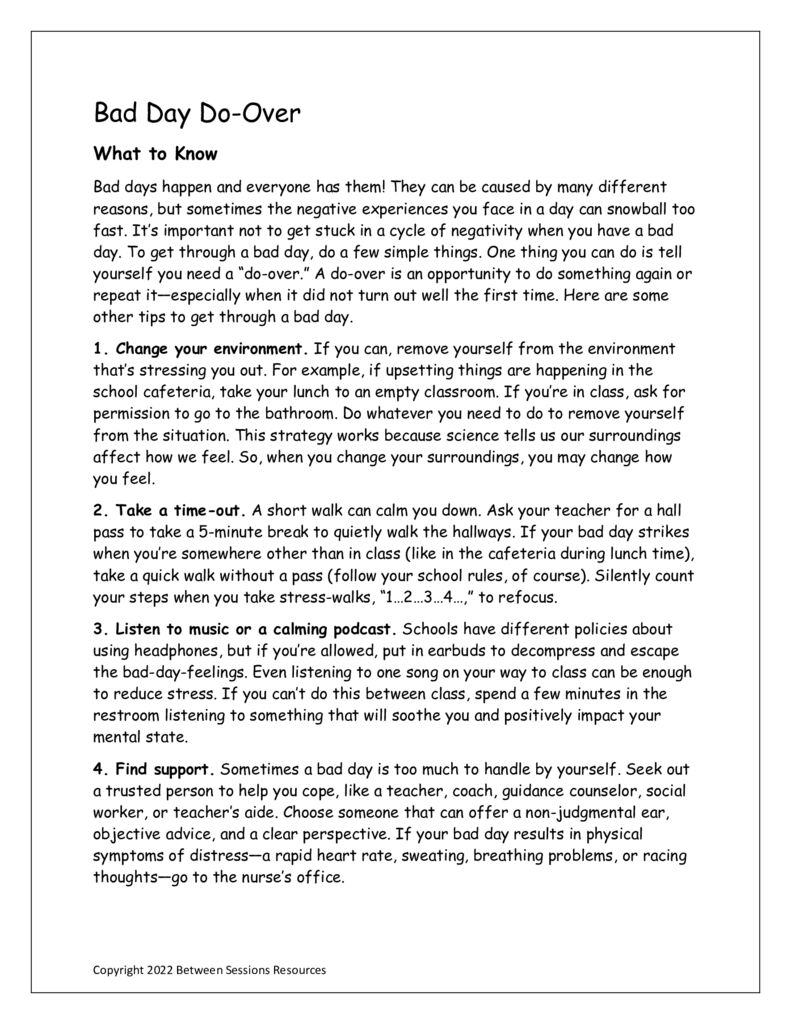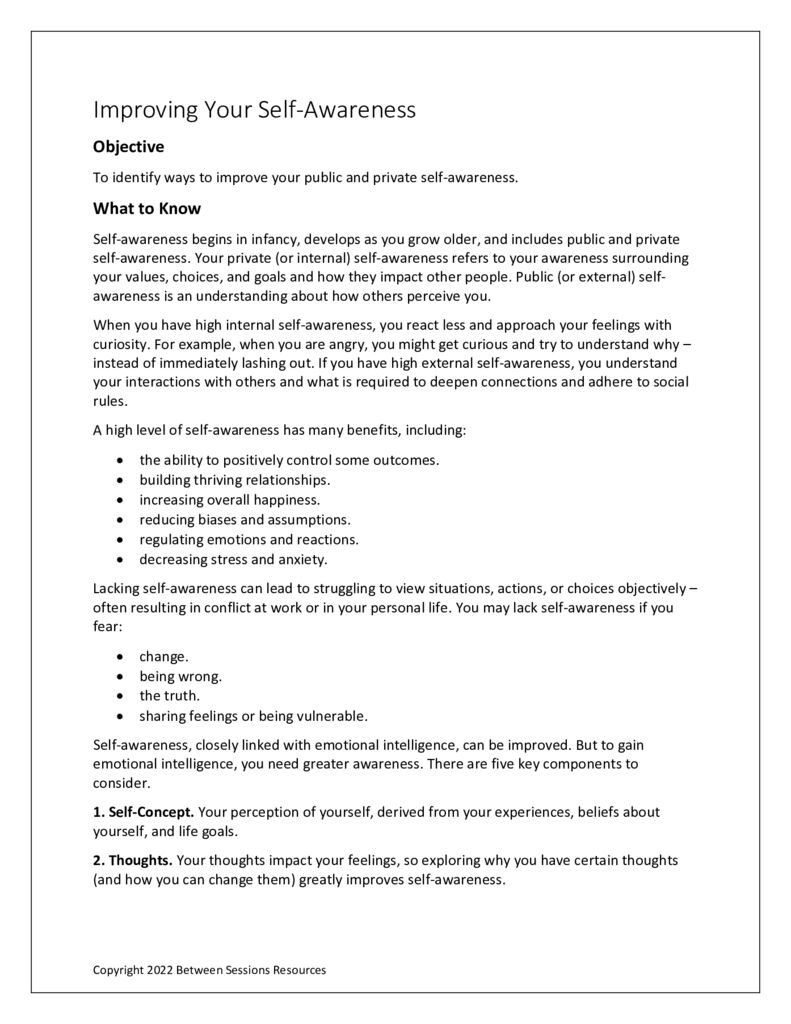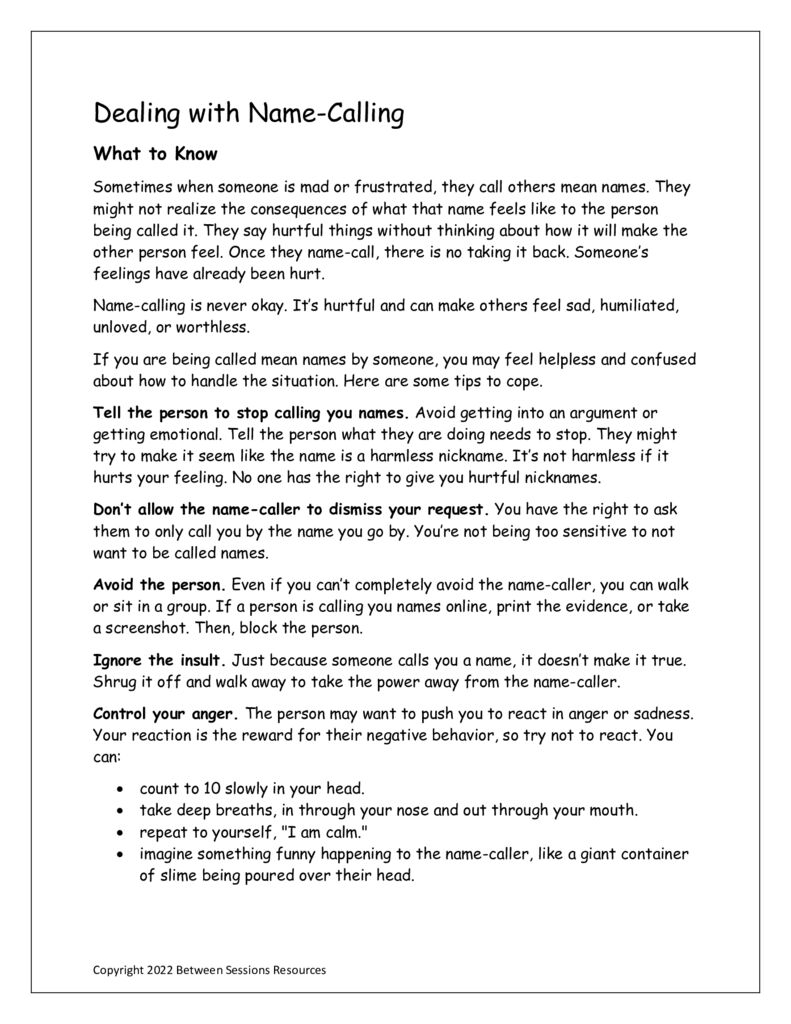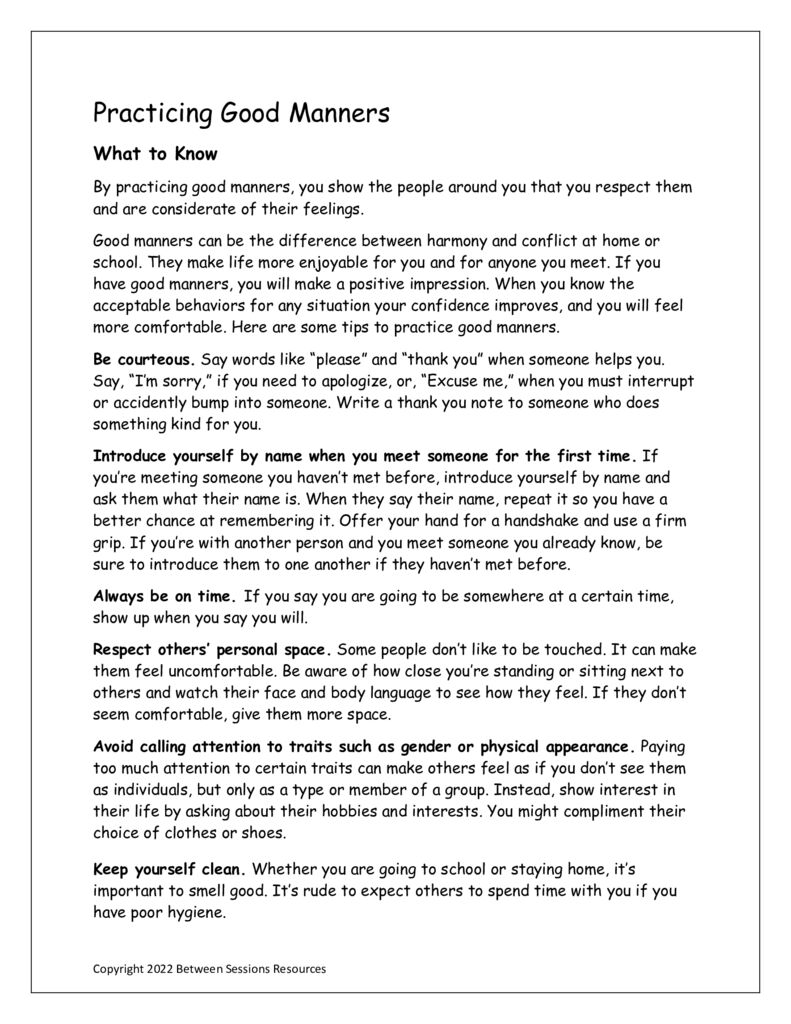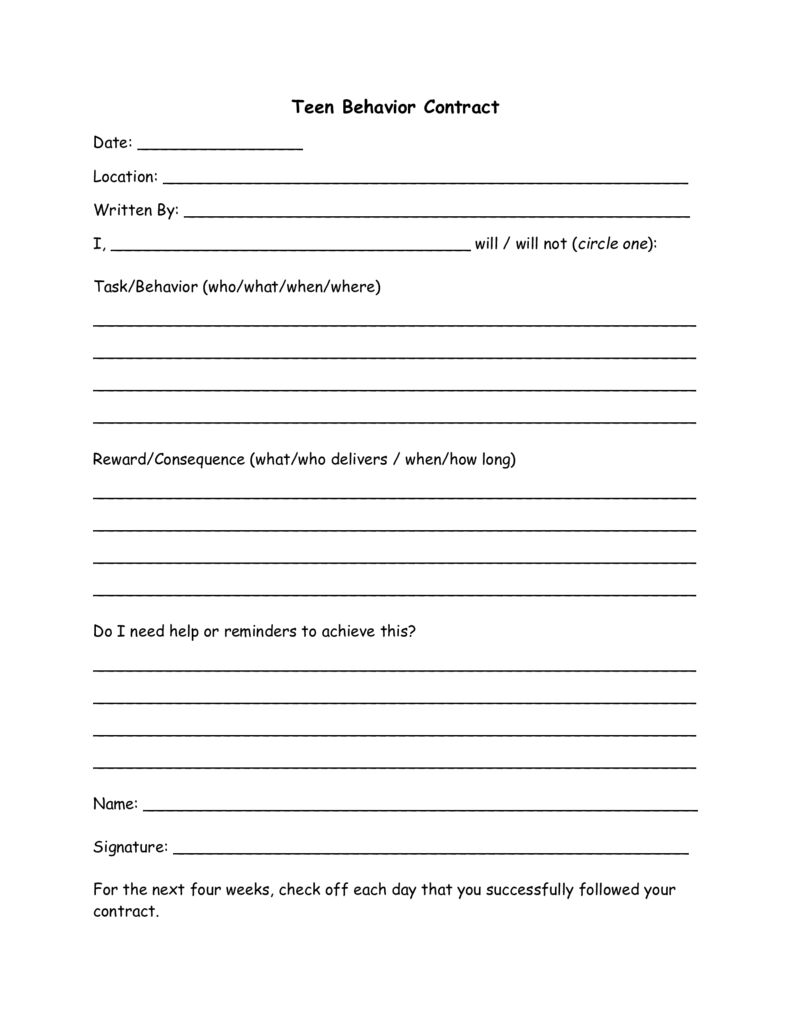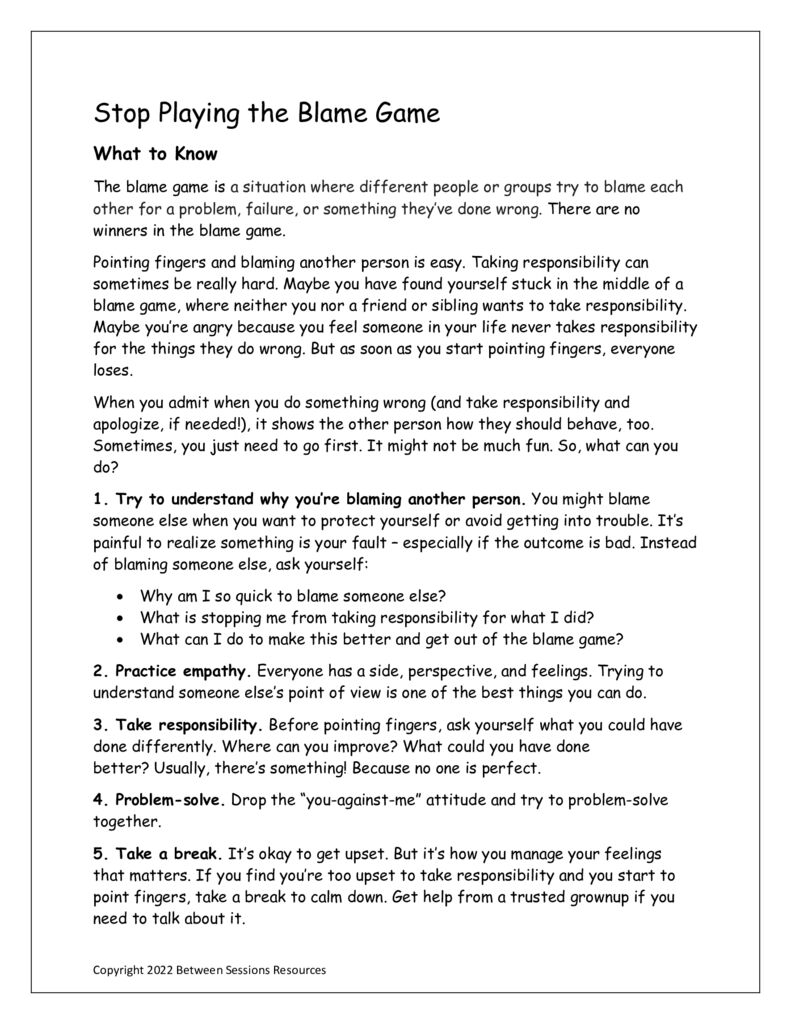Instant relief traps are actions or behaviors that offer a quick but temporary escape from emotional distress. This worksheet helps people think about behaviors they do for instant release and if they are helpful or hurtful to their physical and/or mental health.
This worksheet is designed to help teens accept the consequences of their actions when they make mistakes such as breaking family rules. (0323, behavior, anxiety, anger control)
This worksheet was developed to help families develop better communication skills. It describes the LUV technique which teaches family members to Listen, Understand, and Validate. It encourages the use of I-Messages and compliments and discourages negative communication like put-downs and criticism. A chart is provided to keep track of how family members use these tools at a family meeting. (0323, communication, family therapy)
This worksheet teaches teens the different types of empathy and helps them understand how to increase their empathy by reading body language, being compassionate, and listening carefully to others. (1222, empathy, behavior problems, social problems, Asperger Syndrome, ASD)
This worksheet gives teens the tools to deal with difficult emotions that can translate into a “bad day.” Learning emotional regulation can of course translate into a lifetime of handling difficulties and stress. (1122, emotional regulation, stress)
This worksheet is designed to help people increase their self-awareness which can help in emotional regulation and in social interactions. A chart is provided to help people keep track of their thoughts and feelings as they encounter challenging situations. (0722, self-awareness, insight, emotional intelligence, emotional regulation, relationships)
This worksheet is designed to help children and younger teens deal with peers or siblings who call them names. It suggests six practical and effective ways to handle name-calling. It also contains questions to help kids or teens explore how they react to name-calling. (0722, teasing, behavior problems, sibling rivalry, bullying, Autism, ASD)
This worksheet is designed to help children understand the importance of having good manners in the home. It lists some important manners to show others that you consider their feelings. Questions ask kids and teens to consider how they would react in appropriate ways. (0422, ASD, ADHD, manners, behavior)
This behavior contract identifies tasks/behaviors that a teen will work on, rewards/consequences, and a behavioral chart to track progress. (0622, behavior, contract)
This worksheet is designed to help teens understand that blaming other people for problems does not help any situation. The worksheet suggests a six-step process for understanding a problem and expressing one’s feelings in an appropriate manner. (0522, behavior, social skills, communication)

